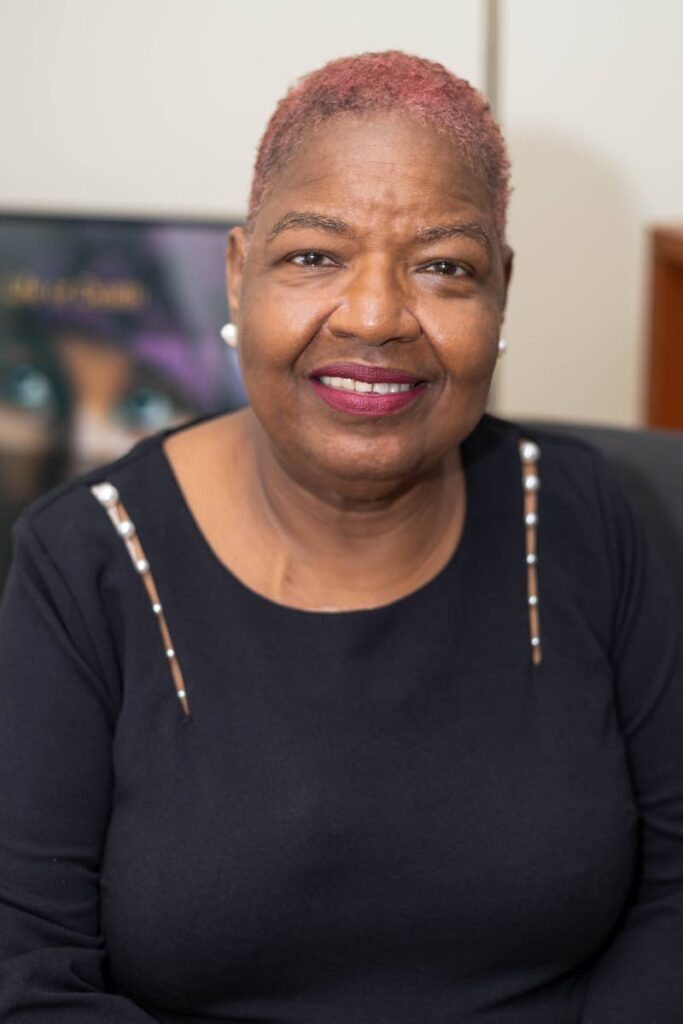Protecting Caribbean women in digital spaces

ELIZABETH TALBERT
THE RIGHTS of women in the Caribbean need to be protected, in physical and virtual spaces. The prevalence of cyberviolence, its root causes and impacts is gender-based, with a disproportionate impact on women. Similar types of violence against women and girls occur in offline and online spheres or originate in one sphere and are carried into the other. In the most serious cases, cyberviolence can lead to physical assaults and even suicide.1
One objective of International Women’s Day (IWD, March 8) this year is to spotlight the importance of protecting the rights of women and girls in digital spaces. The theme for IWD is “DigitALL: Innovation and technology for gender equality”.
In 2018, the UN Special Rapporteur on violence against women and girls, its causes and consequences defined online violence against women to include any act of gender-based violence (GBV) against women that is committed, assisted or aggravated in part or fully by the use of information and communication technologies (ICT), such as mobile phones and smartphones, the internet, social media platforms or e-mail, against a woman because she is a woman, or affects women disproportionately.2
Women worldwide and in the Caribbean are increasingly falling victim to cyberattacks, particularly via social media. There have also been several instances of stalking and trafficking resulting from cyber activities.
Additionally, the rapidly growing access and use of ICT, accelerated by covid19, has impacted gender equality and women’s rights, including the worsening of existing forms of violence against women (VAW), especially sexual harassment, and the emergence of new forms of VAW, such as non-consensual image sharing and harassment of women in virtual spaces.
It is imperative to implement measures to prevent, address and criminalise these acts, to ensure there are consequences for perpetrators. We must also ensure that useful help is available for survivors.
While digital spaces are a challenge for the safety of women and girls, they can be leveraged to protect and promote their rights. Here in the Caribbean, the United Nations – including the UN Population Fund (UNFPA) – has taken several measures, using ICT, to protect our women.
For example – through the EU-funded Spotlight Initiative – in Jamaica the app HOPE (a mobile app) was launched in 2021 in collaboration with the civil society organisation Eve for Life. The app can help you understand if you or someone you know is affected by GBV.
It does this through questions that you can answer. It has information on the rights to a life free from violence in a “know your rights” section. Through the analysis of scenarios, it also helps address common myths related to GBV. Finally, the app provides hints on the actions that you can take to be safe and the contact information of support services.
The digital space also has the potential to promote sexual and reproductive health and rights (SRHR) and raise awareness on human rights. In 2022, the Caribbean Observatory on Sexual and Reproductive Health was launched. The observatory is an advocacy platform that permits monitoring and tracking progress towards the advancement of integrated SRHR and GBV in the region.
While there are several initiatives that can help to address technology-facilitated GBV and promote the right to a life free from violence, we recognise that the work needs to continue and more needs to be done, including promoting the further development, use and dissemination of safe technology for GBV prevention and response.
In addition to highlighting the need to protect women in digital spaces, IWD this year serves to recognise and celebrate women and girls who are championing the advancement of transformative technology and digital education, further promoting gender equality.
There is a plethora of women in the Caribbean who deserve recognition for their work to advance transformative technology and digital education in our region who we should be celebrating and elevating. Today, let’s highlight two of the women in tech who have been making strides in the Caribbean and who can inspire more women to participate in the digital space while promoting safe spaces.
Evie Kanhai-Gurchuran, from Guyana, for example, is the founder of a coworking space that fosters a tech and entrepreneurial community. She works tirelessly to close the opportunity gaps for Caribbean entrepreneurs in the digital space and to close the gender gap for women and girls in computing.
Another stellar woman in tech is Jamaican Melissa James, an award-winning diversity expert who has been dedicated to increasing diversity in the technology industry.
This March 8, join us in celebrating women in tech, but let’s also engage all year long in helping to protect our women in ICT spaces!
UNFPA, as the UN agency responsible for sexual and reproductive health, remains dedicated to supporting governments and stakeholders to protect the rights of women from various forms of violence, while aiming at achieving three transformative results: zero maternal deaths, zero unmet need for family planning, and zero GBV and harmful practices.
UNFPA is committed to helping the Caribbean through deliberate, strategic and collaborative actions that lead to a world where every pregnancy is wanted, every childbirth is safe and every young person’s potential is fulfilled.
1 Addressing Online Violence against Women and Girls in the Commonwealth Caribbean and Americas: The Role of Bystanders, The Commonwealth (2018)
2 Intensification of efforts to eliminate all forms of violence against women: Report of the Secretary-General (2022)
Elizabeth Talbert is the director and representative at the United Nations Population Fund Sub-regional Office for the Caribbean

Comments
"Protecting Caribbean women in digital spaces"